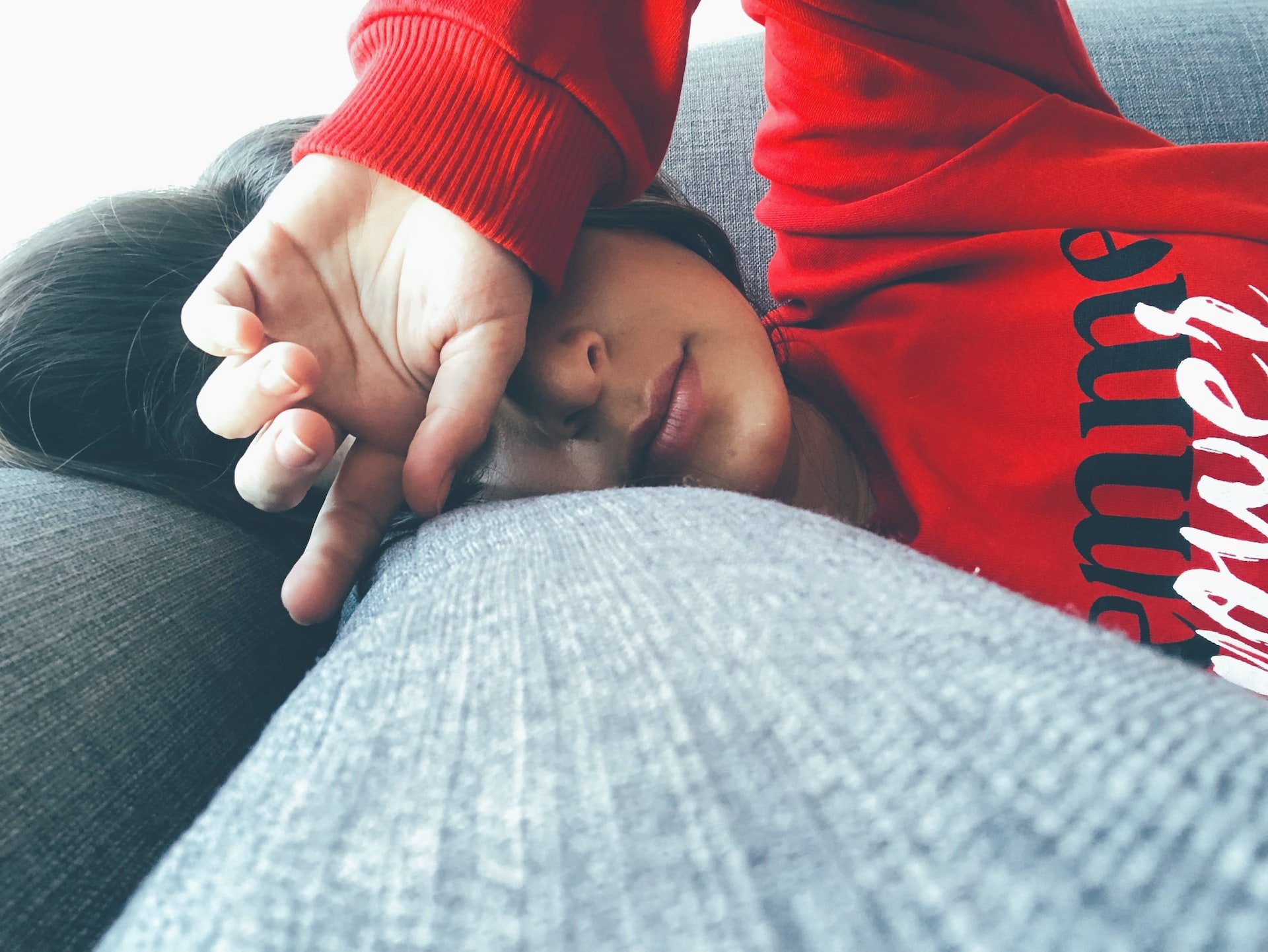 The majority of women and girls do not despise their bodies or themselves. Research has shown that there are generally few variations between genders in terms of general self-esteem (Kling, Hyde, Showers & Buswell, 1999 and Feingold, 1994) and body negativity. Another study’s findings revealed that men just marginally exhibit more self-compassion when passing judgment on themselves (Yarnell, Stafford, Neff, et al., 2015).
The majority of women and girls do not despise their bodies or themselves. Research has shown that there are generally few variations between genders in terms of general self-esteem (Kling, Hyde, Showers & Buswell, 1999 and Feingold, 1994) and body negativity. Another study’s findings revealed that men just marginally exhibit more self-compassion when passing judgment on themselves (Yarnell, Stafford, Neff, et al., 2015).
Therefore, even while women may be more likely than men to experience body image problems, most women do not exhibit pathological levels of self-hatred or body image dissatisfaction. Even when they don’t believe the criticisms are accurate, women are more frequently heard complaining about their appearance. What makes this possible?
Social expectations.
One of the apparent ones, in my opinion, is the possibility that women may be predominantly valued for their attractiveness in many civilizations and cultures. In other words, feminine beauty and attractiveness may be given greater weight than other aspects of them or the attractiveness of people of different genders. Simi Valley Christian Counseling helps individuals navigate cultural pressures and find their true worth beyond societal expectations.
Because of this, women’s sense of how their bodies compare to those of others – whether these others are “actual” people in their daily lives or airbrushed and Photoshopped women in advertisements – may frequently be correlated with their sense of their own value.
We are probably all aware of the pressures women have to focus their energies on altering and preserving their appearance to conform to social standards, which frequently start as early as puberty. In fact, according to a recent survey, 65% of the women who took part in it had experienced body shaming for the first time before the age of fourteen.
Body-shaming messages can be found anywhere, including in the media, schools, and even homes. The prevalence of these messages does not, however, alone explain why women frequently express negative views about themselves, even if they do not experience body negativity. While they can easily contribute to low self-esteem or negative views toward the self in some people, this is not universally true.
Internalized messages about body negativity.
 One explanation for why women frequently experience body negativity is that we often internalize a fear of competition, jealousy, and envy from other women. Women are raised to value relationships and compassion, so we naturally want to blend in and be part of the group.
One explanation for why women frequently experience body negativity is that we often internalize a fear of competition, jealousy, and envy from other women. Women are raised to value relationships and compassion, so we naturally want to blend in and be part of the group.
The urge to belong and fit in is at its highest throughout adolescence, and this pressure is frequently accompanied by the need to have an “ideal” appearance. Competition and envy can accompany demands to maintain a certain appearance.
Envy and jealousy can result in social rejection. It can be painful to experience extreme envy for another person or to be the target of their enviously motivated rejection. These kinds of negative events frequently result in false assumptions about our relationship with our bodies.
To put it another way, we might start to think for ourselves that we can’t be confident and liked by our peers at the same time. Thus, a form of internalized oppression is brought on by the fear of social rejection: “Will I lose my friends if I feel good about my appearance or appreciate them, or if others do?” Women may exhibit their self-hatred in public as a result of this dread to “tame the adversary,” so to speak.
Another reason why women may express body negativity is that their bodies and their food can serve as a type of code for their feelings. Women’s emotions are frequently undervalued; thus they may be more likely to repress, misdirect, or otherwise deny them. So, talking about one’s physique and eating can take the place of other coping mechanisms for feelings.
This might eventually make it more difficult to accurately identify and express emotions. Since emotions reveal what we need, self-criticism as a coping mechanism for emotions may not only be ineffective, but it may also progress to the point where it interferes with self-care and breaches interpersonal boundaries.
 Some people could make an ineffective effort to become motivated to exercise or adopt a healthier diet by publicly criticizing their bodies. According to the theory of internalized criticism, some people think they will be driven to improve if they criticize themselves or themselves to others. This will help them avoid potentially damaging criticism from others.
Some people could make an ineffective effort to become motivated to exercise or adopt a healthier diet by publicly criticizing their bodies. According to the theory of internalized criticism, some people think they will be driven to improve if they criticize themselves or themselves to others. This will help them avoid potentially damaging criticism from others.
Unfortunately, the impact of negative self-talk that is more in line with punishment tends to go away fairly fast. When we are young, we could feel pressured to “behave” to appease adults.
However, body negativity eventually loses its impact as a person withdraws from their objectives, loses faith in their ability to change, or starts to feel defeated. Positive reinforcement has been demonstrated to have a greater impact on behavioral change than negative consequences, therefore this kind of negative self-talk is typically ineffective.
How do we conquer body negativity?
Overall, putting too much emphasis on looks, particularly when it comes to meeting social ideals of beauty, can be harmful to all of us by depleting our energy and ability to fully engage in other aspects of life. All bodies simply cannot be the “ideal” body types and sizes that are frequently portrayed (tall, thin, with a specific figure, etc.), and attempting to do so may only lead to frustration.
By learning to appreciate our bodies for how they feel, what they can do, and the joy they can provide us in life, we may overcome negative self-images and transform negative self-talk and critical messages into positive ones. We are likely to be able to extend this optimism to all areas and improve our general well-being if we can start to do this instead of focusing largely on how we can control it, sculpt it, pare it down, or use it to convey feelings that may need attention.
Additionally, we have a higher chance of being able to spread these encouraging signals to others. So the next time you approach a mirror next to someone else, if self-criticism is your first thought, consider how you may instead serve as a role model for self-esteem and a positive body image.
Body negativity vs. body positivity.
 The majority of people have felt the want to change some part of their looks. They might not like their hair color, nose size, or scar if it is there. However, these perceived flaws frequently don’t cause a lot of anxiety and have minimal effect on a person’s overall sense of self. A positive body image is one that people who embrace their bodies without focusing on perceived defects are said to have.
The majority of people have felt the want to change some part of their looks. They might not like their hair color, nose size, or scar if it is there. However, these perceived flaws frequently don’t cause a lot of anxiety and have minimal effect on a person’s overall sense of self. A positive body image is one that people who embrace their bodies without focusing on perceived defects are said to have.
A healthy body image, according to Ondina Hatvany, LMFT, “means that you are at ease with the body that you have. This does not imply that you believe your body is flawless, but rather that you accept it and pledge to take good care of it.”
A negative or unhealthy body image, however, involves obsessing over one’s perceived defects. People may feel embarrassed or even disgusted by their appearance. Some people would go to great measures to conceal or alter their bodies, even at the price of their own health.
Self-esteem and body image.
Self-esteem and body image are two different but linked ideas. Body image refers to a person’s perspective on their physical body, which is just one component of who they are. Self-view refers to how one feels about oneself overall.
Self-esteem often extends beyond one’s physical appearance and incorporates an assessment of one’s total value. However, a person’s perception of themselves as a whole is frequently closely related to how they feel and think about their bodies.
Even though there is a substantial correlation between self-esteem and body image, a drop in body image does not always result in an equivalent change in self-esteem. An essential moderating aspect is how much one’s self-esteem is based on a broad base as opposed to a restricted base.
Your perception of yourself will also be more secure, constant, and solid when you have a variety of various qualities that you value in yourself. All things considered, body image is rarely cleanly divided into either of two categories.
The experience of body image typically occurs on a continuum. The majority of people have varying degrees of positive and negative body image thoughts at various periods. What features of your body do you love? Instead, try concentrating on that.
Please browse our online counselor directory to find help from a kind and experienced therapist or a Christian counselor at Simi Valley Christian Counseling. if you struggle to overcome negative self-talk, excessively critical thoughts, or body image issues.
“Naptime”, Courtesy of Mel Elias, Unsplash.com, CC0 License; “Sparkler”, Courtesy of Meysam Jarahkar, Unsplash.com, CC0 License; “Bored”, Courtesy of Zohre Nemati, Unsplash.com, CC0 License; “Hoodie on the Beach”, Courtesy of Patryk Sobczak, Unsplash.com, CC0 License
- Kate Motaung: Curator
Kate Motaung is the Senior Writer, Editor, and Content Manager for a multi-state company. She is the author of several books including Letters to Grief, 101 Prayers for Comfort in Difficult Times, and A Place to Land: A Story of Longing and Belonging...
DISCLAIMER: THIS ARTICLE DOES NOT PROVIDE MEDICAL ADVICE
Articles are intended for informational purposes only and do not constitute medical advice; the content is not intended to be a substitute for professional medical advice, diagnosis, or treatment. All opinions expressed by authors and quoted sources are their own and do not necessarily reflect the opinions of the editors, publishers or editorial boards of Stone Oak Christian Counseling. This website does not recommend or endorse any specific tests, physicians, products, procedures, opinions, or other information that may be mentioned on the Site. Reliance on any information provided by this website is solely at your own risk.





